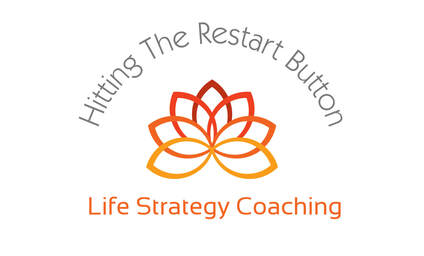|
With the breakup of a marriage, the tragic fact is that either one person or both will be moving and changing residences.
Home Is Your Safe Place Since our home is our safe place and sanctuary, changing where we live is one of the most emotionally charged and even traumatic experiences of the divorce process. And, it affects everyone in the family. Your home provides comfort, a sense of stability, and it is the place that is tied to so many memories. Unlike many other changes during divorce, (except for issues concerning our children), moving out of your residence during divorce and its impact on one's state of emotional well-being is quite profound. Moving Shakes Stability Moving changes your sense of routine and grounding under the best of circumstances, so when it’s something you must do because you are breaking up a marriage, the negative effects are numerous. They include feeling displaced, a shake-up in one's identity, great sadness, anxiety and even depression. Get Heart Centered - Create a "Home Vision" The transition of moving out of your home to a new and unfamiliar space is a process. While there are lots of practical issues that have to be dealt with when changing residences, I want to focus here on how to address the internal struggles and some ways to minimize the pain of this transition. Getting out of your head and becoming heart-centered is a great place to start. There will be plenty of time and professionals to assist you with the practical aspects of your residence change. Take some time to reflect and write out what your vision is for your new home and living situation. What are the features that best suit your day to day living and enable peace of mind through the divorce transition and beyond? Define Your New Home Your new home will become your new safe space. Therefore, determining the type of residence and the specific characteristics that you desire is a first step to ensuring long term that your new home will provide comfort and refuge. Reflect on what type of residence will best fit your lifestyle. For example, private house, apartment, condo, etc. Ask yourself which rooms and spaces have the most significance and say “home” to you - the kitchen, a family room, a backyard. List your desires in order of importance and determine which ones are non-negotiable for you and your new life. Reclaim Control Feeling like your soon-to-be ex-spouse, the judge and even your attorney for that matter, are in control of outcomes during divorce is not uncommon, particularly when your life is changing so rapidly. This is especially true when circumstances dictate that you must uproot and move. Imagining and writing down your home vision enables empowerment and grounding as well as a sense of control in a situation that feels like everything is out of control. Embrace the Positives In spite of the change in living quarters and the sadness and anxiety that accompanies it, "feel" the positives that may come with this new space. Is there anything you will be gaining that really pleases you? If you can find one or two things, keep your focus on this and embrace the joy that comes with these thoughts. Establish Home Goals Goals are key when going through any life transition. When it comes to starting life in your new home, create a plan of action for transforming it into a space that reflects your unique personality, habits and lifestyle. Start to envision the way you will be living day to day, with your kids, extended family, friends and pets. Think ahead to joyous occasions and holidays and the integral role your new home will play in building new, meaningful memories. "Feel" the happiness of these new visions and in so doing, you will start to invent a new home life future before it has even begun! - Elisa Schedule a Strategy Call Today.
0 Comments
If you know the feeling of OVERWHELM during divorce, you are probably wondering - is there an end in sight??
I know how it feels - getting hit from every direction during divorce - especially in the early stages. Financial Concerns The beginning stages bring with it the first wave of financial concerns - lawyer retainers, net worth statements, temporary support and the uncertainty of how much money you will receive or have to pay long-term and the impact on your day to day living. Residential Issues Living and housing considerations include the stress of one person moving out (another expense and unnerving experience) or both residing together until the divorce is final (which can be a nightmare in itself). Visitation Then there's the issue of the children and creating new and often challenging (and stressful for all) visitation schedules. Plethora of Long-Term Uncertainties Long-term concerns include the division of assets, breaking up joint household arrangements like insurance (car, health, homeowners, and life) dividing belongings, taxes, selling of a marital home (if applicable), credit and new loan issues, getting back into the workplace, new schedules and responsibilities as a single person, how to deal with family events, holidays and celebrations, adjusting to single parenthood and co-parenting. All this while trying to do the day to day life responsibilities and go to work. Emotional Upheaval And lest we forget the title wave of emotional upheaval that comes with breaking up a marriage and family - sadness, anger, fear, anxiety, guilt, loss of identity, feeling displaced, exhaustion, etc etc. WHEW! I'm exhausted just writing this! The Problem - Going It Alone Most people have the misguided idea that they have to bear the burden of all of this alone. This takes an already daunting situation and magnifies it further. The result is feeling consistently stressed, an inability to relax, which can lead to lack of sleep, unhealthy eating (either over or under eating) a state of mind that is NOT well suited for thinking clearly and making the best decisions for yourself and your future. Oftentimes, this leads to being so overloaded that you just feel stuck. The Solution - Getting Support The solution is really quite simple - Get Support! Having the support of friends and family who make you feel good and are there to lend an ear or lend a hand to ease the overwhelm of your new lifestyle and the legal process is vital. Professional support, such as a therapist or coach will provide much needed help in shouldering the burden so you can take one step at a time. The result will be clearer thinking and workable action plans to manage the whole enchilada. This is a great antidote for relieving stress, overwhelm and feeling stuck, and allowing you to see some light at the end of the tunnel. In this way, it becomes easier to move forward empowered, and implement a well-thought out methodical and manageable plan for each issue of concern. I’ve witnessed the transformation that occurs when objectivity and support is present to get through divorce, making it easier to breath and attack each issue with clarity for self-serving results. Be kind to yourself and get support in managing all of the elements thrown at you throughout the divorce process. You should not shoulder this overwhelming experience alone. Schedule a Strategy Call today. - Elisa Ever wonder why so many people are angry about their divorce settlement? I was like most people, and got my divorce law "education" from television and the movies, believing those expressions, "I will take him to the cleaners" or "She will get nothing." And in TV programs and movies, there is always a victorious party (usually the protagonist) who gets everything they want (and believe they deserve), while the other party gets nothing. No wonder so many people have a false expectation with their own divorces. The truth is, this is not how real life and the law work. To think like this is just setting yourself up for disappointment and emotional upset when it comes to the outcome of your divorce. Having Unrealistic Expectations Sets You Up To Be Angry
Having unrealistic expectations is usually the result of not having a basic, working knowledge of divorce law and the basis for which decisions are rendered by the court. An inability to manage expectations causes tremendous stress, which can manifest in feeling that your attorney is not on your side. This is because he/she is coming from a perspective of working within the parameters of the law and the formulas and norms used to render decisions pertaining to asset division, spousal/child support, visitation and many other aspects dealing with marital breakup. This can result in the all too common “victim mentality” that everyone - the judge and even your lawyer are against you. Know the Basics About Divorce Law in Your State Having a general understanding of the basic divorce laws in your state can do wonders for managing those unrealistic expectations and facilitating clarity and a sense of empowerment during divorce. For example, knowing if you live in a no-fault state, and that alimony (“spousal support”) and child support are figured out based on formulas rather than arbitrarily decided upon, are only a few of the facts that will help you when beginning your divorce journey. Managing Expectations Saves Time and Money Being forearmed with as much knowledge as possible about the basic laws and possible outcomes of your divorce settlement will help you manage your expectations and feel less like a victim. Empowering yourself in this way will also reduce stress, minimize unnecessary arguing, save you precious time and valuable money. Knowledge is power when navigating divorce and your best investment for a successful outcome! - Elisa |
ELISA
|
|
Elisa Valentino
HOLISTIC BEHAVIORAL PRACTITIONER DIVORCE & LIFE TRANSITION COACH SPIRITUAL LIGHTWORKER PUBLIC SPEAKER PODCAST HOST |
©2024 Hitting The Restart Button





 RSS Feed
RSS Feed
